AI-powered flashcards aim to boost preparedness in Marine Corps training
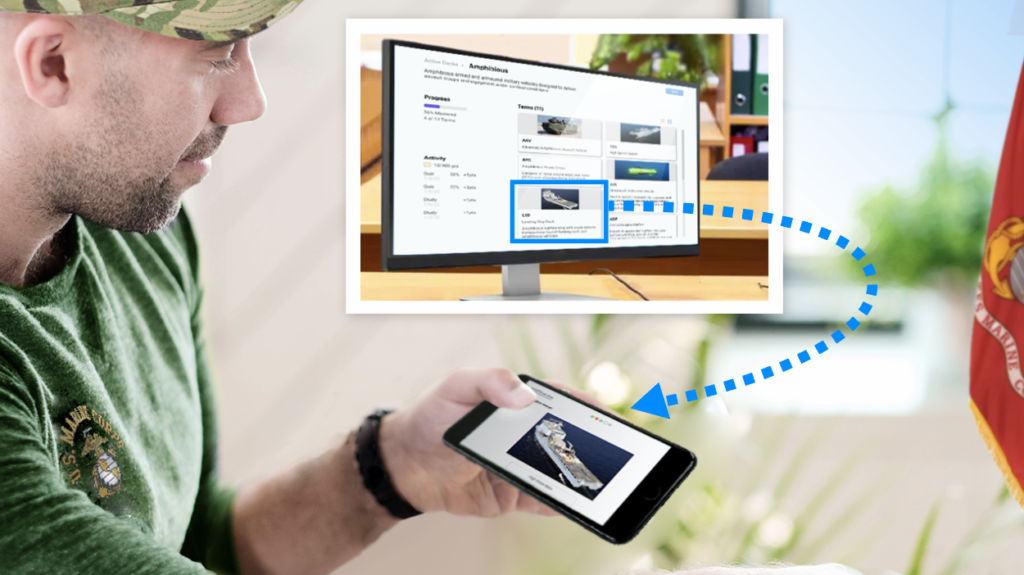
Charles River Analytics is developing an intelligent digital flashcard system to enhance military training and prepare warfighters. In recent pilot testing at US Marine Corps schoolhouses, participants noted the Marine Adaptive Schoolhouse Training with E-learning Repetition Technology (MASTERY) flashcard system’s ability to improve student preparedness and allow instructors to go deeper into course material. Following […]
New AI framework aims to bring explainability to autonomous decision-making for Air Force Research Laboratory

Charles River Analytics was awarded a $1.8M Small Business Innovation Research (SBIR) contract from the Air Force Research Laboratory (AFRL) to develop a framework that provides explanations for deep reinforcement learning (DRL) agents. The effort aims to make AI systems usable in mission-critical environments by providing insight into how DRL-based autonomous agents make decisions. The […]
Curiosity, cognition, and collaboration: A Q&A with Nicolette McGeorge

From welding steel in high school to advancing human-AI teaming in tactical flight systems, Dr. Nicolette McGeorge has led with curiosity into her career. Now a Senior Scientist in our UX Innovation Division, she holds a PhD in Cognitive Systems Engineering and brings a passion for thoughtful problem-solving and human-centered insight to every challenge she takes […]
DARPA awards Charles River Analytics $4.2M to advance cybersecurity through compartmentalization

Charles River Analytics was awarded a contract for up to $4.2 million from the Defense Advanced Research Projects Agency (DARPA) to create compartmentalization architecture to enhance cybersecurity. This effort supports DARPA’s Compartmentalization and Privilege Management (CPM) program focusing on a new approach to cyber resilience. Traditional cybersecurity focuses on perimeter defenses designed to stop external threats from entering […]
Awarion® AI maritime technology enhances naval escort safety in crowded harbor environments

To ensure safe passage, high-value assets such as Navy aircraft carriers require escorts when entering or exiting crowded harbors. The Perception Autonomy for Vessel Escorts (PAVE) system from Charles River Analytics automates the process to reduce the number of people required and increase the speed for each mission. This Small Business Innovation Research (SBIR) Phase […]
Real-time data for real-time feedback: Charles River and ASU awarded funding to support DARPA’s OP TEMPO program, which aims to enhance team training effectiveness
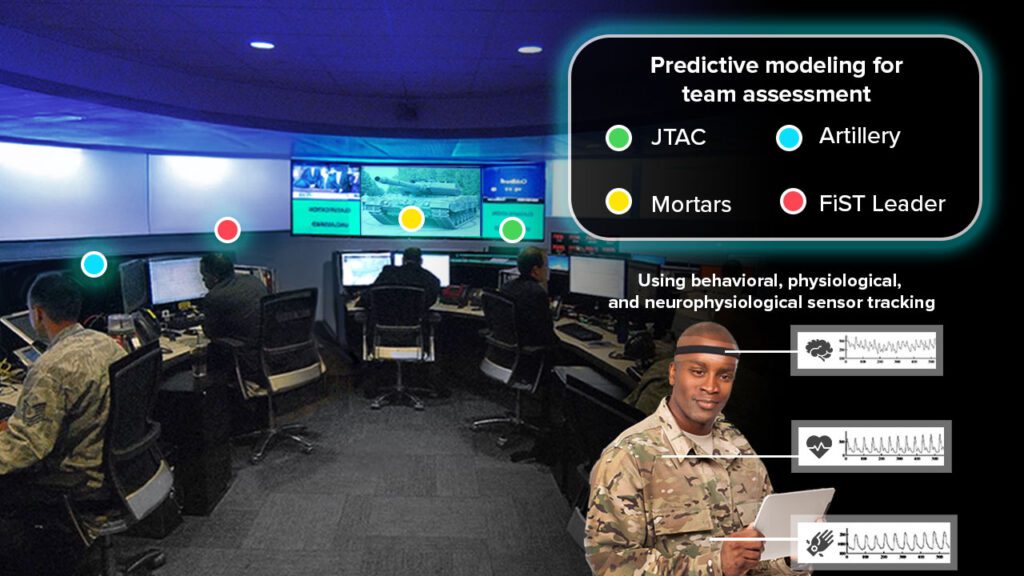
An individual’s preparedness for a task need not always translate into productivity as a member of a team. To understand how the two are related and to develop reliable and objective predictors of team performance, Charles River Analytics is working on a Bio-Behavioral Team Dynamics Measurement System (BioTDMS). The effort is being led by Arizona […]
Charles River Analytics awarded up to $3.2M by ARPA-H to strengthen usability and utility of biomedical data tools

A collection of tools is of little value unless all users can access it seamlessly in workflows. This is especially true in the rapidly evolving biomedical research sector with its vast array of new data and groundbreaking technologies. Charles River Analytics is working with the Advanced Research Projects Agency for Health (ARPA-H), an agency within […]
DARPA awards $4.5M to Charles River Analytics to develop AI-powered prediction technology for critical minerals supply chain

DARPA awarded Charles River Analytics a contract totaling $4.5M to create a large-scale probabilistic model of supply and demand, which aims to increase transparency for the global critical minerals market. Critical minerals, or minerals that are essential for economic and national security but have vulnerable supply chains, such as nickel, cobalt, and lithium, are essential […]
Innovative video game and robot system, funded by NIH, enhances pediatric physical therapy for children with cerebral palsy
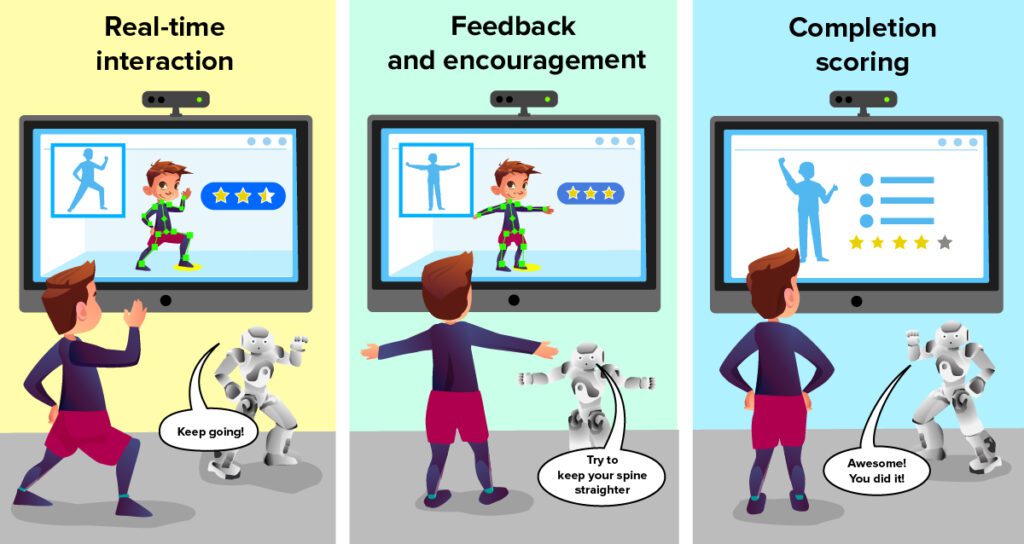
Charles River Analytics completed Phase I of a contract from the National Institute of Health (NIH) to create an active video game and robot system for children undergoing rehabilitative physical therapy. The system is designed to provide companionship and engagement to help children with cerebral palsy (CP) or similar neurological conditions improve their adherence to […]
Navy awards Charles River Analytics $1M to boost submarine detection capabilities with AI/ML technologies
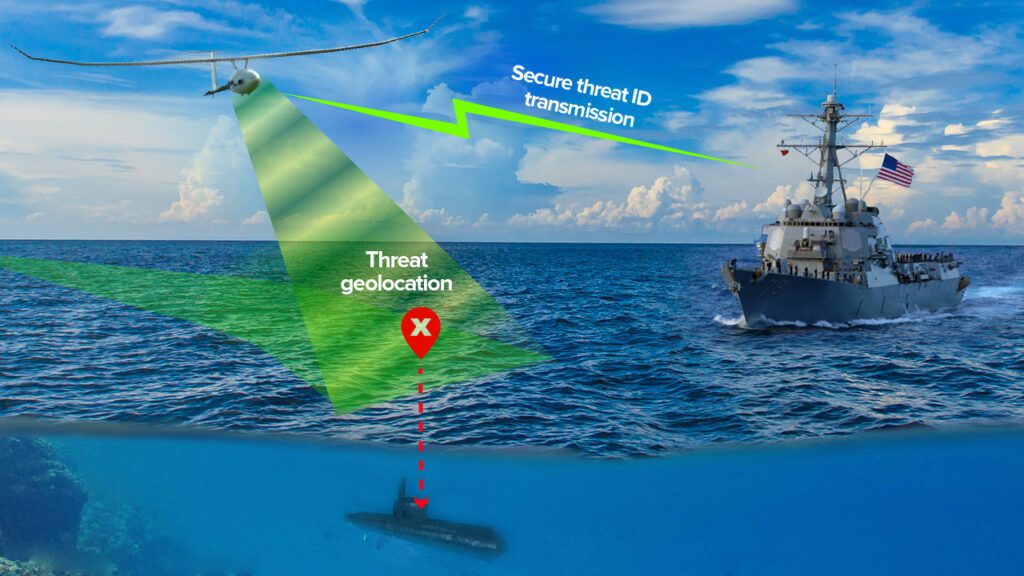
Given the rise of stealthier and quieter submarines, current detection tools, which primarily focus on acoustic measurements, need an upgrade. Charles River Analytics won a nearly $1 million Small Business Innovation Research (SBIR) Phase II contract from the US Navy to develop an alternative system to detect submarines effectively using their magnetic signals. The Magnetometer-based ASW […]
Charles River Analytics assessed “Awardable” for Department of Defense work in the CDAO’s Tradewinds Solutions Marketplace for KWYN® SOLAR

Charles River Analytics today announced that it has achieved “Awardable” status for KWYN® SOLAR the company’s immersive space training platform, which can now be found on the Chief Digital and Artificial Intelligence Office’s (CDAO) Tradewinds Solutions Marketplace. The Tradewinds Solutions Marketplace is the premier offering of Tradewinds, the Department of Defense’s (DoD’s) suite of tools […]
Charles River Analytics wins contract from US Navy to incorporate human AI teaming concepts into mission planning
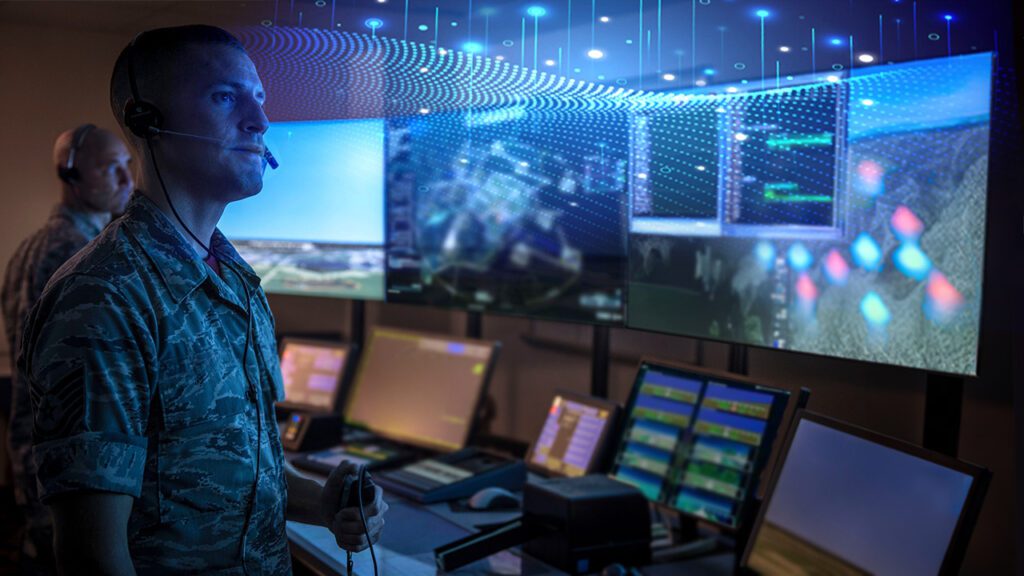
Charles River Analytics won a $2 million Small Business Technology Transfer (STTR) Phase II contract to integrate innovative human‑AI teaming approaches into Navy operations. Joint User-centered Planning Artificial Intelligence Tools for Effective Mission Reasoning (JUPITER), funded by the Naval Air Systems Command (NAVAIR), is an AI-based mission planning framework focused on the effective use of […]
Charles River Analytics assessed “Awardable” for Department of Defense work in the CDAO’s Tradewinds Solutions Marketplace for Awarion®

Charles River Analytics today announced that it has achieved “Awardable” status for the company’s Awarion® Autonomous Lookout System, which can now be found on the Chief Digital and Artificial Intelligence Office’s (CDAO) Tradewinds Solutions Marketplace. The Tradewinds Solutions Marketplace is the premier offering of Tradewinds, the Department of Defense’s (DoD’s) suite of tools and services […]
Talent management tool from Charles River Analytics uses crowdsourcing to simplify recruitment and training

Charles River Analytics, along with PSI Services, Inc., received a five-year $2 million contract from the Department of Defense (DoD) to improve talent management methods for the US Army Research Institute. The JobDESIGNER tool uses crowdsourcing methods to simplify the process of updating job requirements and tasks, so even non-experts can conduct needed surveys and […]
Charles River Analytics awarded $9.9M DARPA contract to develop trusted AI approach for complex operations planning
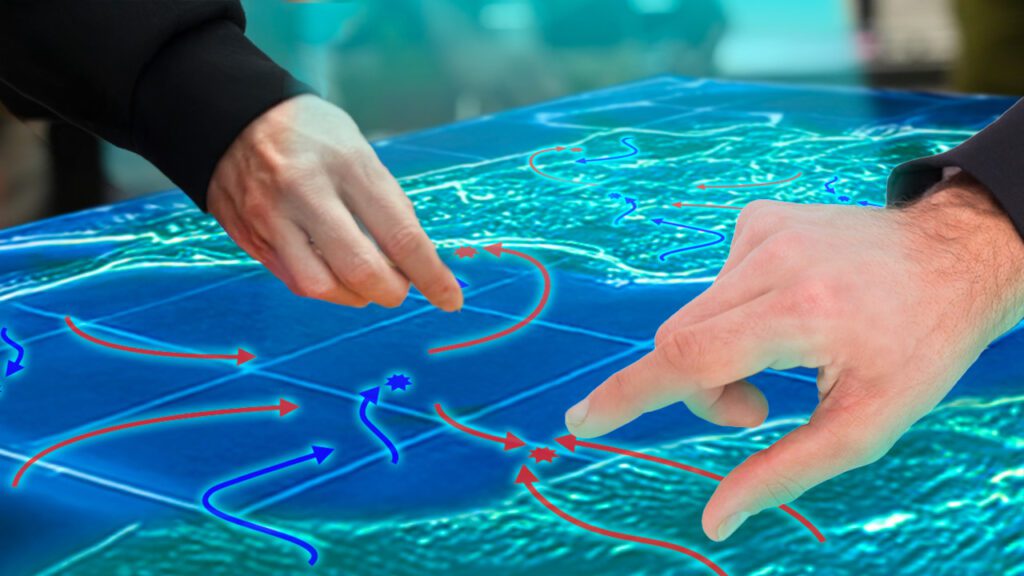
The Defense Advanced Research Projects Agency (DARPA) Strategic Technology Office (STO) awarded Charles River Analytics a $9.9M contract to create automated strategies that can rival human expertise in planning complex operations. This Phase 2 work follows a $4M Charles River Phase 1 contract that demonstrated the success of a new neuro-symbolic AI approach for using […]
Charles River Analytics exploring cyber-psychological tactics as part of IARPA contract

Phishing emails use social engineering to exploit human vulnerabilities and execute large-scale attacks through a single weak link. Researchers at Charles River Analytics are turning the tables, using similar principles against attackers. Most cybersecurity methods involve analyzing tools and methods and fortifying existing defenses. While these techniques have their merits, they miss accounting for perhaps […]
Making impactful, positive change through technology: A Q&A with David Koelle

From coding in grade school to writing rap lyrics, meet David Koelle, Principal Software Engineer, and Director of Engineering, Human-Centered AI division. Dave is fueled by curiosity, creative problem-solving, and the “human” aspects of being an engineer. Q: Tell us a little bit about your background. A: I grew up in the New Haven area […]
Charles River Analytics awarded two $3.6M SBIR contracts to facilitate faster processing of challenging semantics in Army intelligence documents
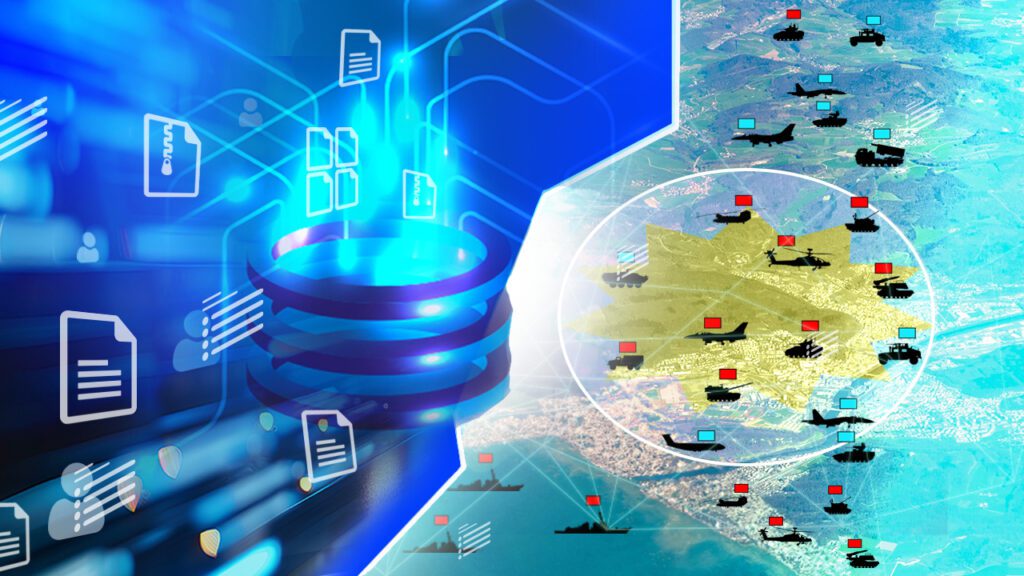
Army intelligence analysts work with large volumes of information in the form of reports. Ironically, because the documents were written for human consumption, they contain ambiguous and implicit information that is difficult for computers to extract, leaving the analysts to manually comb through the data looking for key nuggets of information. Charles River Analytics has […]
Robotic platform being developed to help medics optimize triage during mass casualty incidents
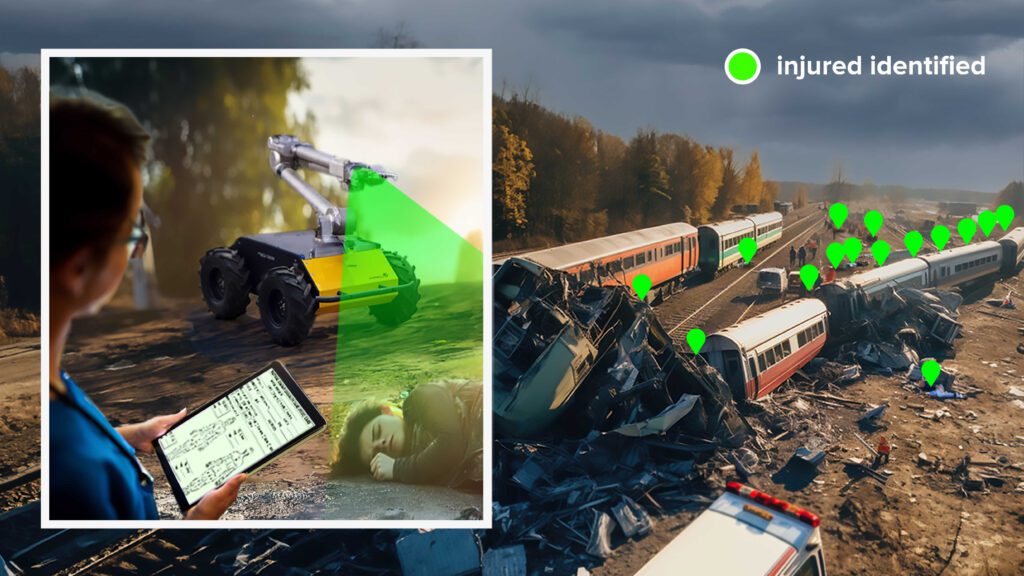
In the devastating aftermath of mass casualty incidents (MCIs), there’s a very slim “golden window” where lives can still be saved. The Point of Injury Navigation, Triage, and Emergency Response (POINTER) robotic platform from Charles River Analytics helps medics do their job more effectively in such a time- and resource-constrained environment. The Defense Advanced Research […]
Army awards Charles River Analytics contract to develop AI-powered logistics platform

The Small Business Innovation Research (SBIR) program awarded Charles River Analytics a ~$1.9 million contract to create a logistical intelligence platform that integrates available supply and consumption information for units on the frontline to provide an accurate picture of ammunition availability and force readiness. The SBIR award will be supported by the US Army’s Joint […]
Q&A with Susan Latiff, User Experience Scientist and Product Lead for KWYN® SOLAR

A childhood dream of becoming an astronaut along with a PhD in Experimental Psychology led her to being the product lead on KWYN® SOLAR, a VR training tool for understanding the space domain. Q: Tell us a little bit about your background. A: I did my undergraduate degree in Psychology, and after working in the […]
New SDK tool from Charles River Analytics focuses on symbiotic AI to help design engineers create cost-effective systems
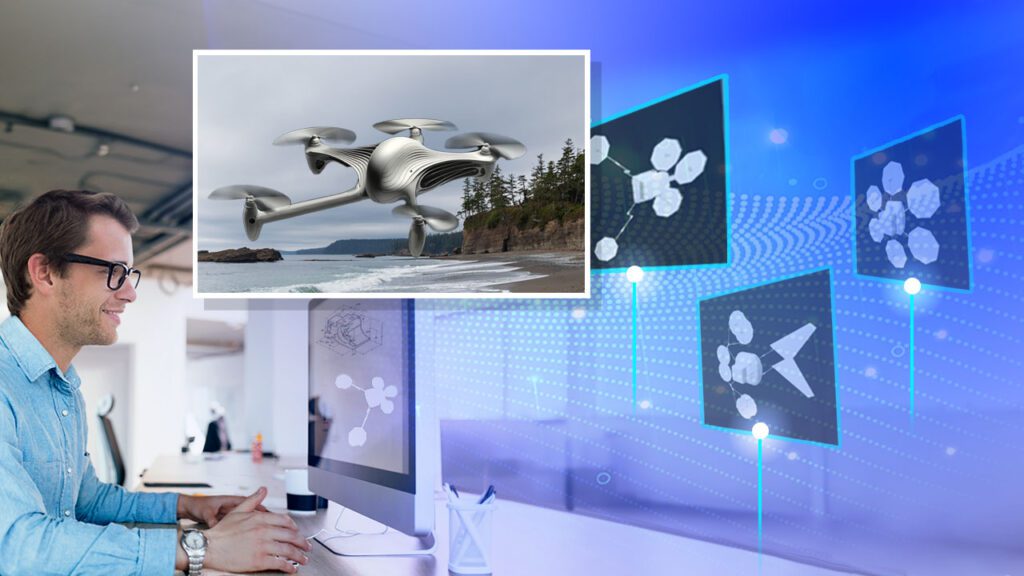
As AI-based tools are increasingly incorporated into system design processes, human-machine collaborative workflows must mitigate potential biases of human designers while promoting human insights and creativity. An AI-driven alternative approach to the design process that addresses these needs is the inspiration for the Joint, Adaptive, Robust Visualization and Interaction System (JARVIS) tool from Charles River […]
Navy awards Charles River Analytics a contract to facilitate easy integration of hierarchical autonomous systems in the military
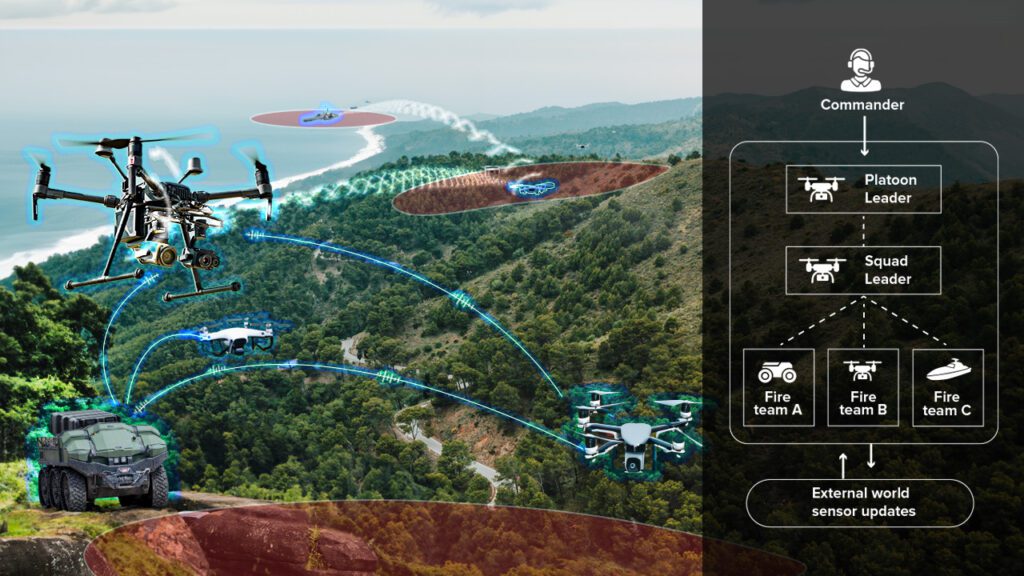
As the US military integrates more autonomous systems into its ranks, it must do so in the context of existing command-and-control (C2) structures. Ensuring that new uncrewed systems (UxSs) play well and conform to hierarchical protocols is not easy, but Charles River Analytics is addressing the challenge. The Office of Naval Research awarded Charles River […]
NIH grant supports extension of Charles River’s CBT-based TheraVerse™ product line to include VR app for people looking to quit vaping

Charles River Analytics was awarded a Small Business Innovation Research (SBIR) grant from the National Institutes of Health (NIH) National Institute on Drug Abuse (NIDA) to create a virtual reality (VR) application to enhance therapy for quitting electronic cigarettes (vaping). Studies have linked vaping to adverse effects such as oral health problems, lung damage, and […]
Charles River Analytics to help the Air Force execute critical security decisions
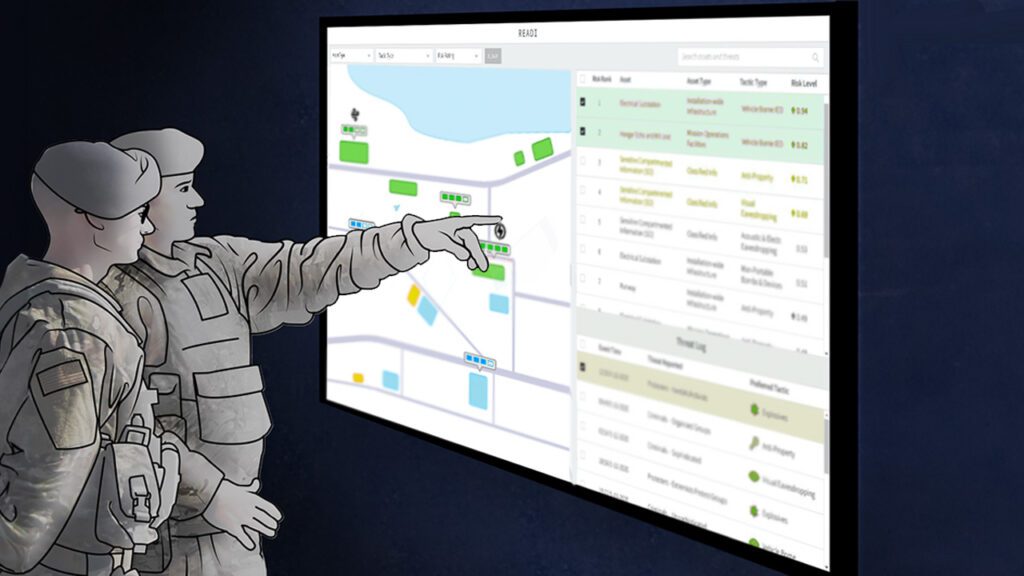
Charles River Analytics received Phase II Small Business Innovation Research (SBIR) funding from the Air Force Civil Engineer Center (AFCEC) to develop integrated tools to support decision-making related to installation security and risk assessment. The resultant system, Real-Time Assessment and Decision Interactive Toolkit (READI), delivers relevant information tailored to the needs of each user in […]
VR tool from Charles River Analytics will help train emergency responders handling hazardous materials

The National Institute of General Medical Sciences (NIGMS) awarded Charles River Analytics a contract to help instructors use virtual reality (VR) tools appropriately and to their full potential to enhance training for emergency responders who may encounter hazardous materials. The project has received funding of approximately a quarter of a million dollars, enabling the design […]
DARPA awards Charles River Analytics multiple SBIR contracts to explore artificial social intelligence for enhanced collective problem-solving

Charles River Analytics was awarded a ~$1.5 M contract from the Defense Advanced Research Projects Agency (DARPA) to create a toolkit that enables collaboration among experts. The Small Business Innovation Research (SBIR) sequential Phase II contract builds on previous work on a cross-domain collaboration workflow management system and an artificial intelligence (AI) coach for teams. […]
US Army awards Charles River Analytics Phase II SBIR contract to create intelligent training system for Signal Corps

The US Army awarded Charles River Analytics a $1.7M Phase II Small Business Innovation Research (SBIR) contract to create an intelligent system for training Signal Soldiers on communications and information systems. Following a successful Phase I feasibility study, the Charles River team is now developing a system to help enhance the Army’s training content for […]
Charles River Analytics Awarion® Autonomous Lookout System Wins a Popular Science 2023 “Best of What’s New” Award
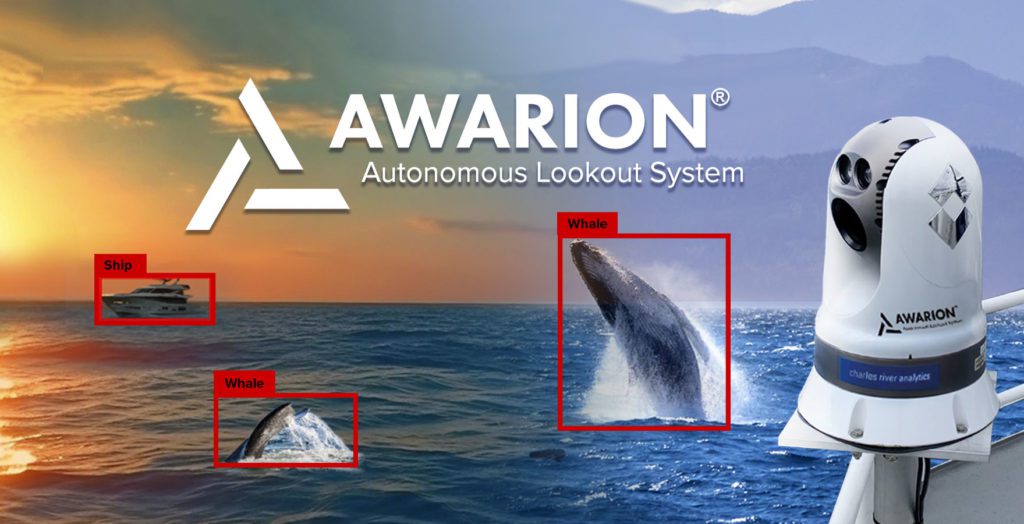
Advanced collision-avoidance notification system uses AI and computer vision to detect the presence of whales, ships, and other objects (CAMBRIDGE, MA) – Charles River Analytics announced that its Awarion® Autonomous Lookout System was selected as a groundbreaking innovation by Popular Science. Awarion, which is currently being deployed to assist marine mammal protection measures during offshore […]
Q&A with Spencer K. Lynn, Senior Scientist in the Human-Centered AI Division

Spencer Lynn is a Senior Scientist with a PhD in Ecology and Evolutionary Biology. His research background is in learning, perception, and decision-making using behavioral, neurophysiological, and computational modeling methods. At Charles River, Spencer brings biologically inspired approaches, from neuroscience to behavioral ecology, to the intelligent systems that we build. Q: What is your favorite […]
Navy awards additional contract for Charles River Analytics to develop speech processing for training applications

Charles River Analytics was awarded a Phase II Small Business Innovation Research (SBIR) contract from the Naval Air Systems Command Naval Air Warfare Center Training Systems Division (NAWCTSD). Supported by this funding, the Charles River team and partner OWT Global are developing techniques to tailor speech processing to specialized training applications. Speech recognition and generation […]
Charles River Analytics awarded contract to develop improved virtual training materials for US Navy
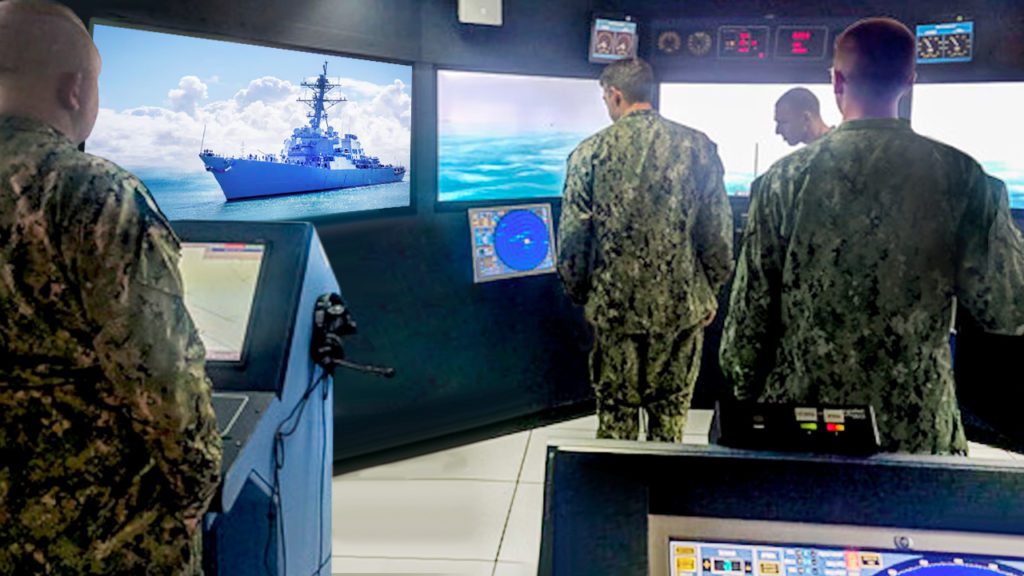
Along with the University of Nevada, Reno, Charles River Analytics received a Small Business Innovation Research (SBIR) Phase II award to develop an intelligent tutoring system (ITS) that improves the navigation, seamanship, and ship-handling skills of the US Navy’s Surface Warfare Officers (SWOs). The prototype tool, Mentoring and Responsive Learning through Intelligent Nautical Skill-modeling, Prompting, […]
Air Force Research Laboratory awards Charles River Analytics contract to develop operational XR for space domain awareness

Charles River Analytics was awarded a $1.25 million contract through the Small Business Innovation Research (SBIR) program sponsored by the Air Force Research Laboratory (AFRL), Intelligence Systems, Analytical Systems Branch. The funding enables Charles River to expand their work on an extended reality (XR) system for space situational awareness—as well as battle management and command […]
US Air Force Academy using augmented and mixed reality for space training, research, and education

(US AIR FORCE ACADEMY, CO/CAMBRIDGE, MA) – The US Air Force Academy (USAFA), responsible for educating cadets for service in the officer corps of the US Air Force and US Space Force, is now using the augmented reality suite KWYN® SOLAR developed by Charles River Analytics to facilitate training and research of orbital mechanics and situational […]
Charles River Analytics nets contract to increase shared awareness with mixed crewed and uncrewed teams
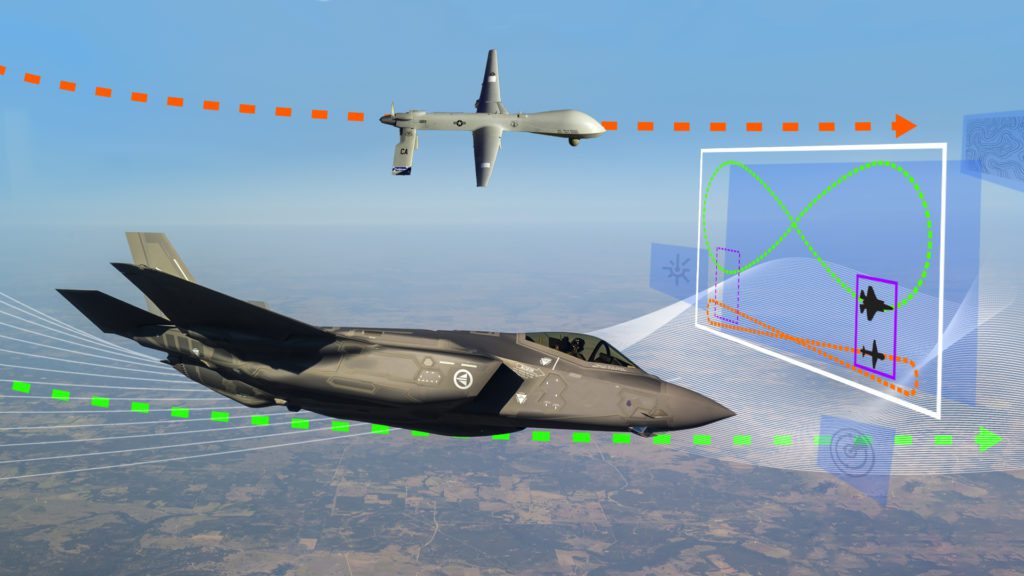
Facilitated by a Small Business Technology Transfer (STTR) Phase II contract from the US Air Force Research Laboratory (AFRL), Charles River Analytics is developing advanced display tools that will help human operators effectively team with autonomous systems in challenging communication environments. Tactical Interfaces for Teaming with Autonomy (TITAN) is a multiphase endeavor that will develop […]
New mental health screening tool from Charles River Analytics will aid in warfighter health and readiness
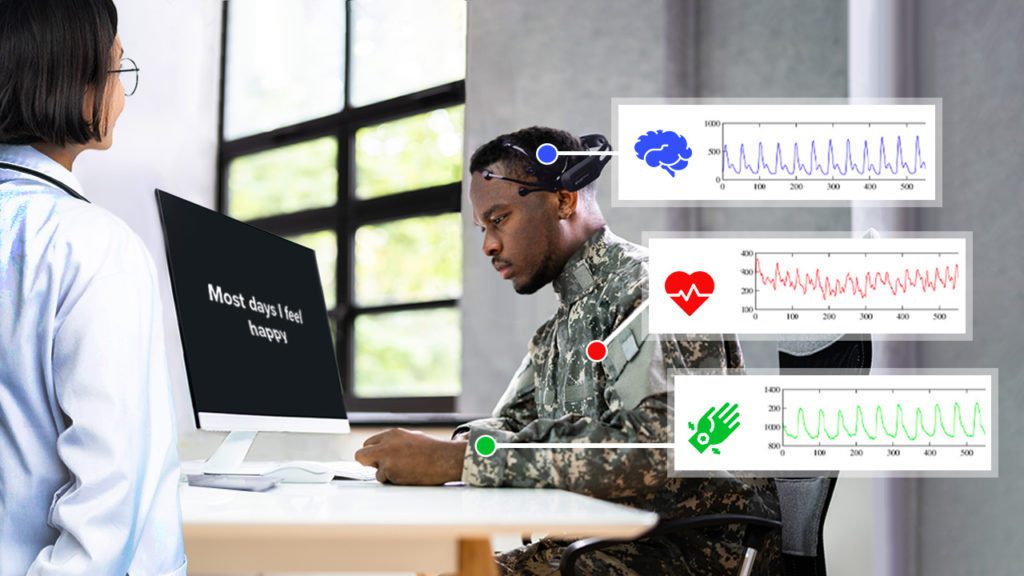
Charles River Analytics is partnering with researchers from Tufts University, the Georgia Institute of Technology (GA Tech), and Emory University to develop techniques for conducting more objective psychological state assessments of warfighters and veterans. The Preconscious Signal Compilation for Robust and Individualized Belief Evaluation (PRESCRIBE) project won a nearly $10.5M contract from the Defense Advanced […]
DARPA’s Defense Sciences Office awards Charles River Analytics contract to develop adaptable AI

Charles River Analytics is combining probabilistic programming and symbolic reasoning for flexible, more resilient artificial intelligence (AI). The company was awarded a $1.6M Phase II contract from the Small Business Innovation Research (SBIR) program to develop adaptable AI systems. This project builds on previous progress that the Charles River team made in combining the best […]
Charles River Analytics awarded contract to develop predictive AI-enabled maintenance tool for electrical transformers

Charles River Analytics received a $1.1 million sequential Phase II Small Business Innovation Research (SBIR) contract to deliver condition-based maintenance of electrical transformers to keep critical power systems running. Probabilistic Operations Warranted for Energy Reliability Evaluation and Diagnostics (POWERED) integrates large amounts of available transformer data to diagnose equipment health and predict the possibility of […]
NASA awards Charles River Analytics additional contract to advance concepts for robots working as a team for lunar exploration
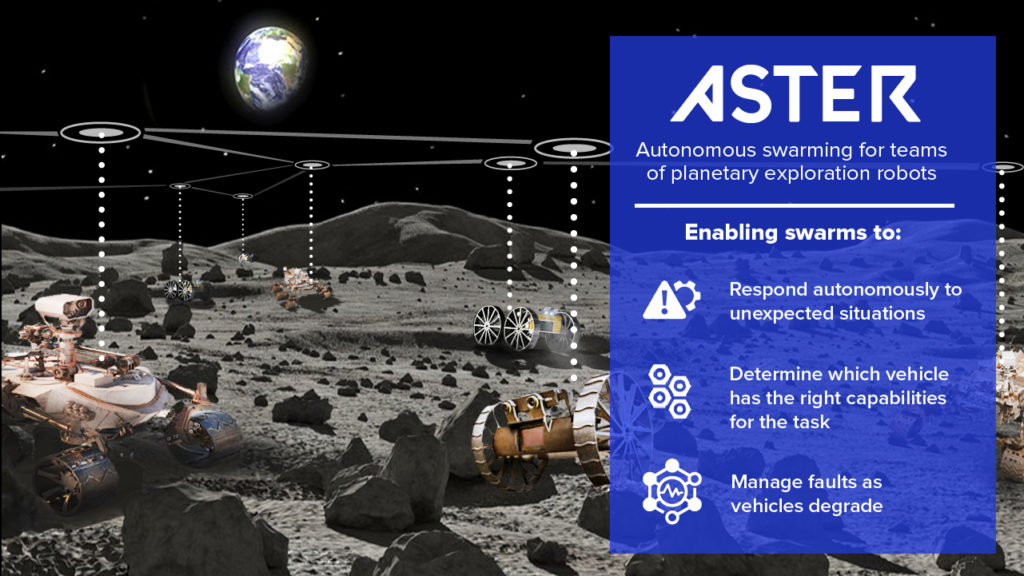
Charles River Analytics, in collaboration with Worcester Polytechnic Institute (WPI), was awarded a $750,000 contract from NASA to enable robots to work together to explore the Moon. Under the Autonomous Swarming for Teams of Exploration Robots (ASTER) project, a team of Charles River scientists is developing artificial intelligence inspired by a psychological principle called “theory […]
United States Space Force Unit 13th Delta Operations Squadron (13 DOS) using augmented and mixed reality for training and education
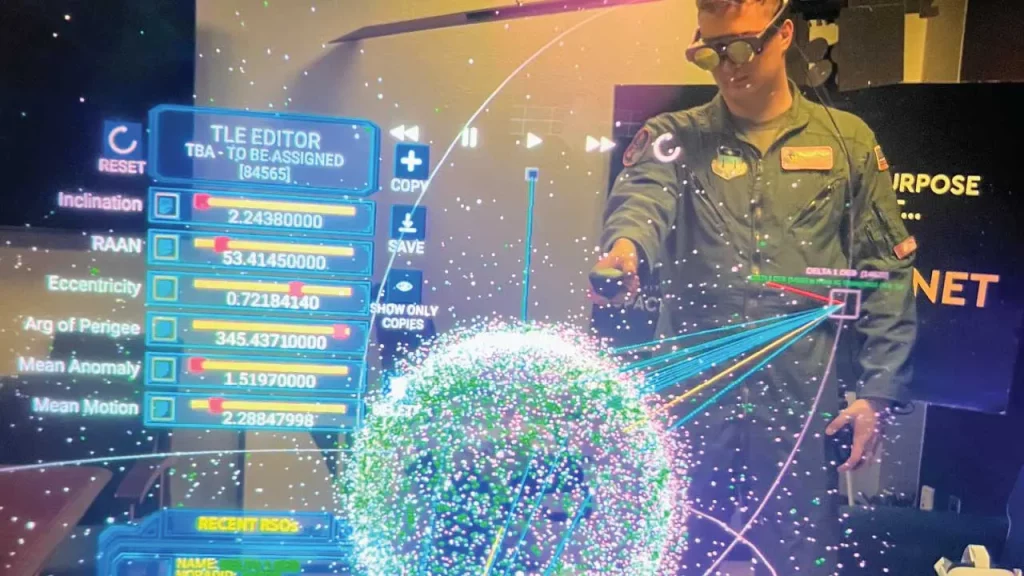
(MAXWELL AIR FORCE BASE, AL/CAMBRIDGE, MA) – Space Force Unit 13th Delta Operations Squadron (13 DOS), responsible for Guardian education, including institutional professional military education, continuing education, advanced education programs, and USSF officer accessions, today announced it will use the extended reality suite, SOLAR, developed by Charles River Analytics, to teach space operational concepts and […]
Army taps Charles River Analytics to develop personnel safety system for autonomous ground systems
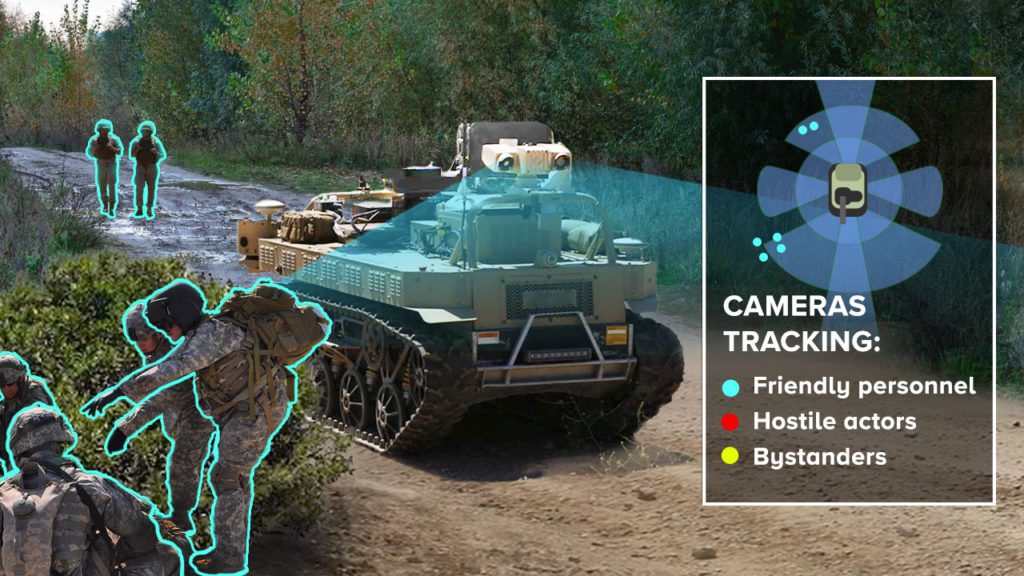
Charles River Analytics was awarded a $1.7 million contract from the Army Small Business Innovation Research (SBIR) program to develop a personnel safety system for autonomous ground systems. Operational safety is paramount to successfully deploying driverless systems, as they will operate alongside soldiers, bystanders, and hostile actors. Therefore, these systems must be equipped with a […]
Charles River Analytics completes NASA contract, develops hybrid AI system to identify and assess wildfire risk
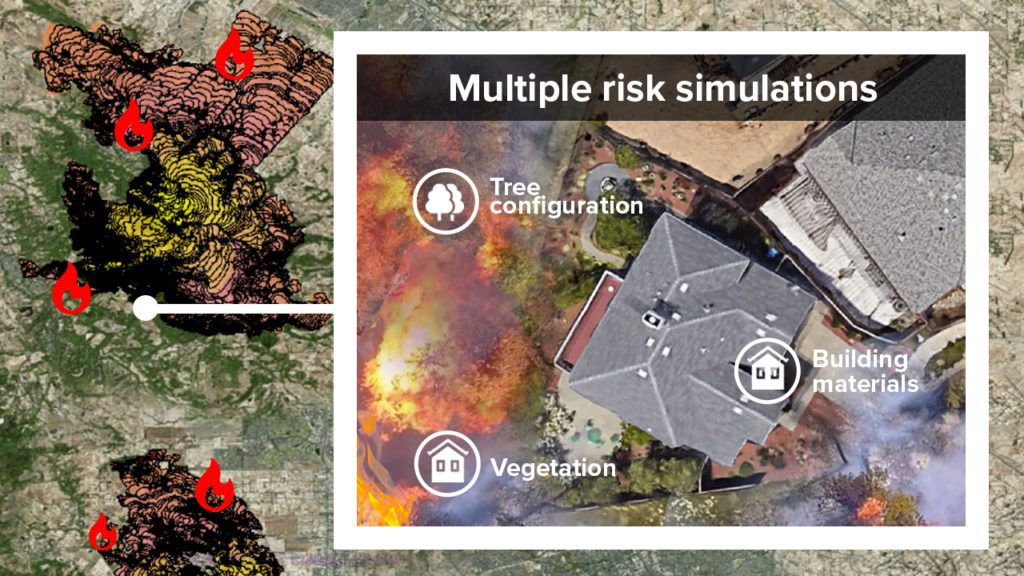
Charles River Analytics has completed the first phase of a Small Business Innovation Research (SBIR) contract with NASA’s Jet Propulsion Laboratory to develop an AI-assisted wildfire risk assessment system. The Wildfire Integrated Modeling, Prediction, and Learning Environment (WIMPLE) uses hybrid artificial intelligence (HAI) to analyze data from multiple sources and provide a better overall understanding […]
Charles River Analytics nets contract to enhance Naval situational awareness at sea
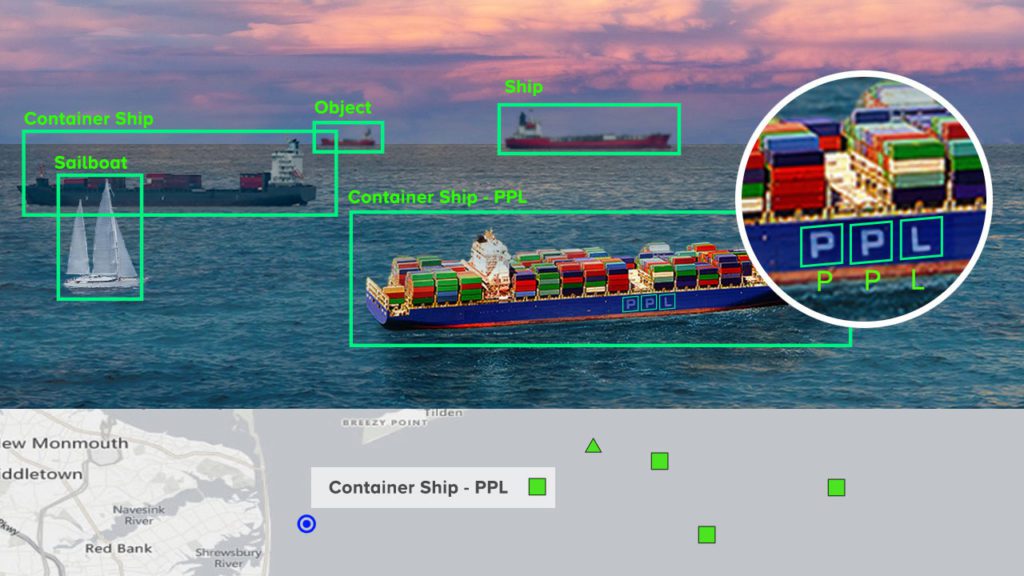
Charles River Analytics received a $1.8 million contract to classify and identify ships and other vessels at sea. The Automatic Text Extraction for Awareness in the Maritime (A-TEAM) system works with existing labeled image datasets and banks of unannotated maritime images to enable automated systems to recognize text on ships at sea. Knowing the ship’s […]
Charles River Analytics scientists and engineers bring battlefield tech to eyewear virtual try-on

Multiple efforts sponsored by the Small Business Innovation Research (SBIR) program recently resulted in the spinout of Veero™, which is applying advanced AI, AR, and computer-vision engineering to deliver exceptional customer fitting experiences. Work on the technology behind Veero began when the US Army asked for a smartphone app that could quickly and accurately fit […]
National Institute of Health award extends grant for Charles River Analytics to build VR training technology to help workers manage hazardous materials safely
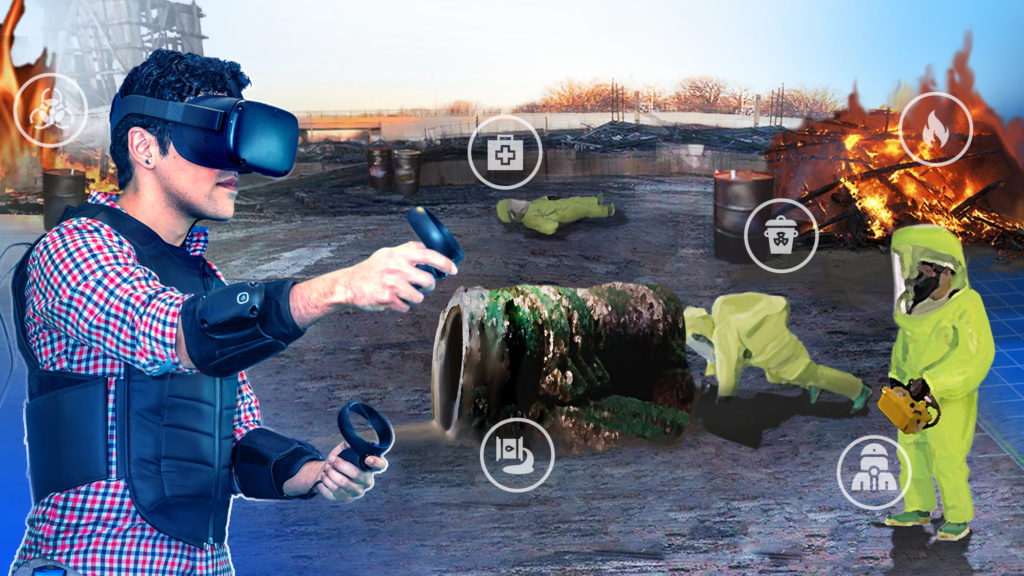
Charles River Analytics was awarded an additional Small Business Innovation Research (SBIR) grant from the National Institute of Environmental Health Sciences (NIEHS) to create VR modules that enhance training for hazardous waste operations and emergency response (HAZWOPER). Following a successful Phase I and supplemental COVID-19 grant, Charles River continues to build VR content to bridge […]
Charles River Analytics awarded Phase II SBIR contract to help Department of Defense analyze personnel sentiment using natural language processing

Charles River Analytics received a Small Business Innovation Research (SBIR) contract from the Department of Defense (DoD) to develop software that uses Natural Language Processing (NLP) techniques to analyze free-form text for sentiment. The Jargon Association for Language Analysis in Domains (JALAD) program will save the DoD time and money, as the software automates the […]
Charles River Analytics spin-out, Veero™, goes to market with precision virtual-fit solution for eyewear retail

New company delivers breakthrough commercial solutions using advanced human-modeling, AI, and computer-vision technology originally developed at Charles River Analytics. Charles River Analytics spin-out, Veero™, today introduced its EyeSize virtual-fit solution for eyewear retail, leveraging a cross-section of advancements in human modeling, AI, and computer-perception technology developed at Charles River over the past five years. EyeSize […]
Charles River Analytics secures contract to develop predictive maintenance analytics for robotic combat vehicles
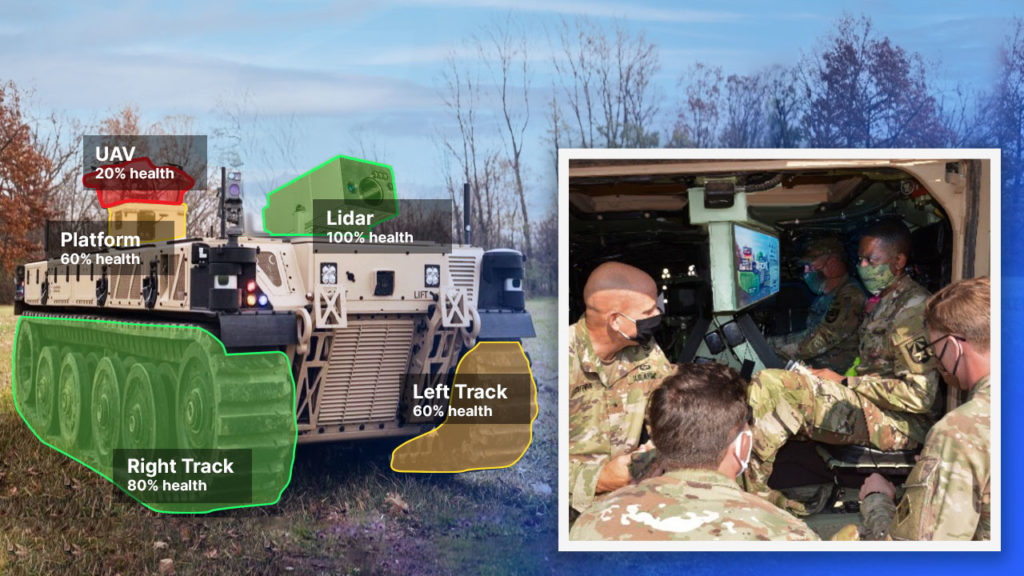
Charles River Analytics received a Phase II contract under the Small Business Innovation Research (SBIR) program to keep robotic combat vehicles (RCVs) as mission capable as possible. The Real-time Assessment and Predictive Status (RAPS) system from Charles River Analytics predicts the health and status of RCVs and relays actionable insights to stakeholders across all Army […]
Charles River Analytics wins Army contract to develop AI-based adaptive cybertraining tool
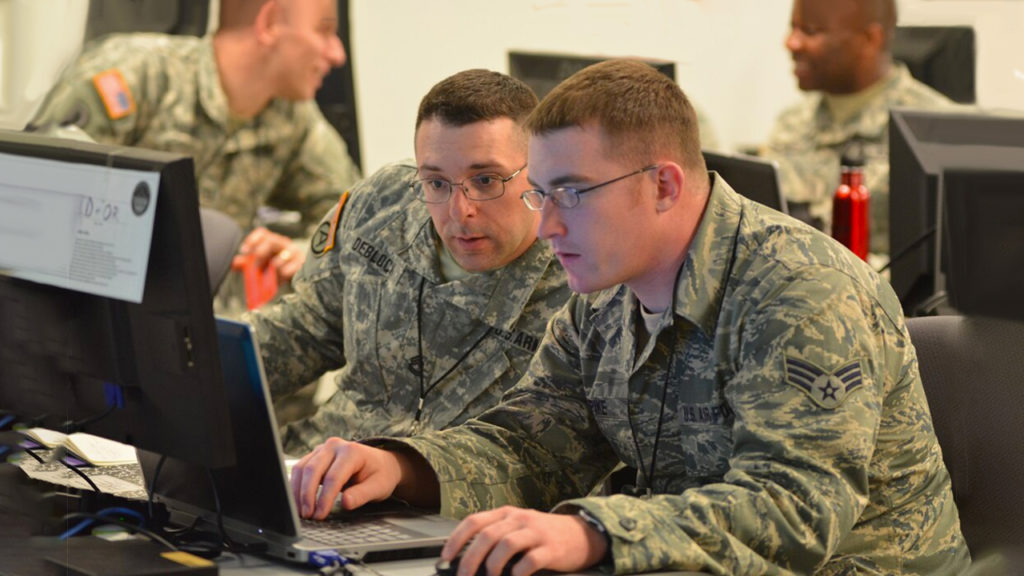
Charles River Analytics won a contract, in two phases, to develop an artificial intelligence (AI) and machine-learning-based cyber opponent that would enable more frequent and less resource-intensive cybersecurity training. The $1.1 million Phase II contract, awarded through the Small Business Innovation Research (SBIR) program, will run through July 2023. Given the growing threat of cyberwarfare, […]
From graduate school to the lab, Ben Bauchwitz excels at developing adaptive training programs

Ben Bauchwitz is a researcher, scientist, graduate student, competitive swimmer, and dog Dad. But he’s never had a cup of coffee. When he’s not perfecting the art of microwaving a hot dog (“the secret is the mix of heating styles that I use by varying the duration and power levels,” says Ben), he’s studying and […]
Charles River Analytics awarded contract to facilitate compliance with software development guidelines

Charles River Analytics won a Small Business Innovation Research (SBIR) Phase I contract from the Department of Defense (DoD) to develop a tool to automate the software compliance evaluation process and aid quality assurance professionals. The contract began in December 2021 and work was completed in June 2022. The Missile Defense Agency (MDA) mission utilizes […]
Charles River Analytics nets SBIR contract to achieve smarter cyber resilience of aircraft systems

Charles River Analytics received a Small Business Innovation Research (SBIR) contract from the Air Force Research Laboratory (AFRL) to improve cyber resiliency of aircraft systems. Cyber Grammar Representations for Attack Meta-Monitoring including Analysis and Response (CyGRAMMAR) is the result of this effort. Aircraft pose a special challenge for cybersecurity: If a breach were to occur, […]
Charles River Analytics wins DARPA contract to make use of traditionally discarded sensor data from seafaring vessels
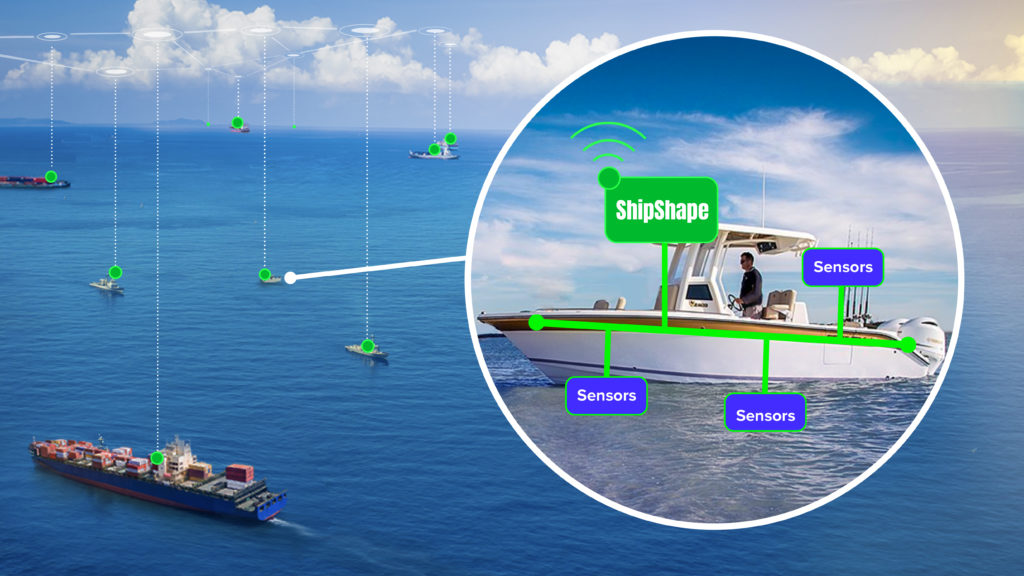
Charles River Analytics won a $225K contract from the Defense Advanced Research Projects Agency (DARPA) to research and develop a low-cost device that can collect and analyze data from isolated vessels at sea. Such crowdsourced data can help others navigate the same waters. Seafaring vessels routinely collect data sets for live operations then discard them […]
Q&A with Ross Eaton, Principal Scientist and Director of Marine Systems

Who knew that at the intersection of introductory computer programming and psychology courses, a first semester chemical engineer would find his way into the computer vision space and help build a camera system that protects whales. Q: Tell us a little bit about your background. A: I went to Yale thinking I was going be […]
Vineyard Wind Partners with Local Tech Firm on Enhanced Marine Mammal Detection
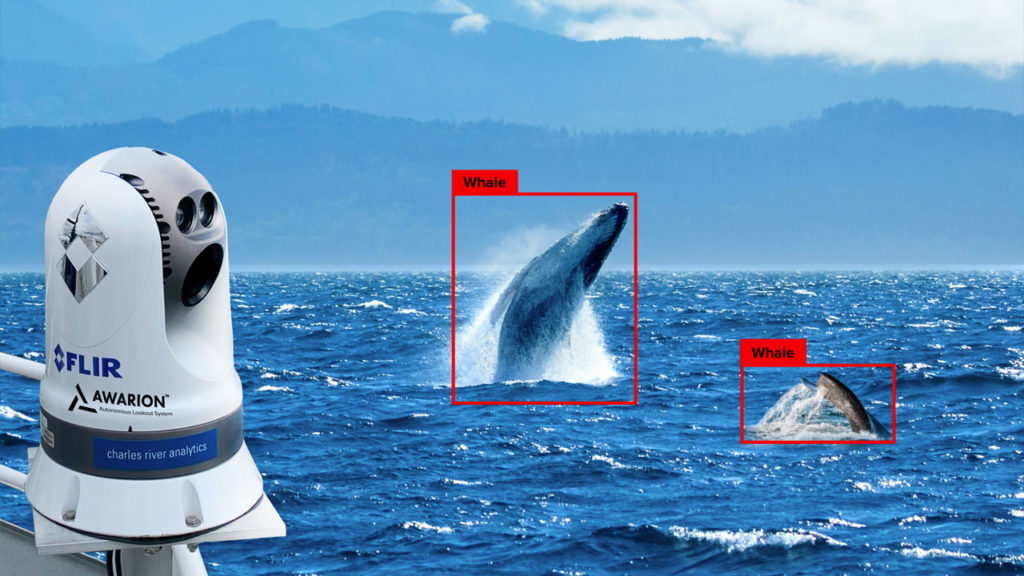
Charles River Analytics to Provide Artificial Intelligence and Computer Vision Technologies to Enhance Wildlife Protections (NEW BEDFORD, MA) – Vineyard Wind and Charles River Analytics announced a new collaboration today aimed at further protecting marine mammals during the construction of the Vineyard Wind 1 project. As part of the effort, Vineyard Wind will employ Awarion® […]
Charles River Analytics and Team of Researchers Net $11.3 million to Research Authorship Attribution and Authorship Privacy

Charles River Analytics is part of a team of researchers that won a $11.3 million contract to infer authorship of uncredited documents based on the writing style. The Human Interpretable Attribution of Text Using Underlying Structure (HIATUS) program sponsored by the Intelligence Advanced Research Projects Activity (IARPA) uses natural language processing techniques and machine learning […]
Navy Awards Additional Funding to Charles River to Help Conduct Forensic Analysis of Cybersocial and Cybertechnical Attacks

Charles River Analytics won $2.5 million, in two phases, for modeling and inferring intent of cyberspace threat actors. As cyberwarfare ramps up, analysts need effective forensic analysis of both kinds of cyberattacks; on IT infrastructure (cybertechnical) and through social media operations spreading disinformation (cybersocial). Unfortunately cyberattacks have become increasingly complex with explicit obfuscation techniques to […]
Charles River Analytics Named to Top 100 Women-Led Businesses in Massachusetts by The Women’s Edge and The Boston Globe

Annual award highlights women business leaders who are making a significant impact on the state’s economy The Women’s Edge (formerly The Commonwealth Institute) together with its partner The Boston Globe, today announced Charles River Analytics was a part of the 22nd annual Top 100 Women-Led Businesses in Massachusetts list. “The organizations on this year’s diverse […]
Charles River Analytics Wins Contract to Enable More Robust AI Model Development
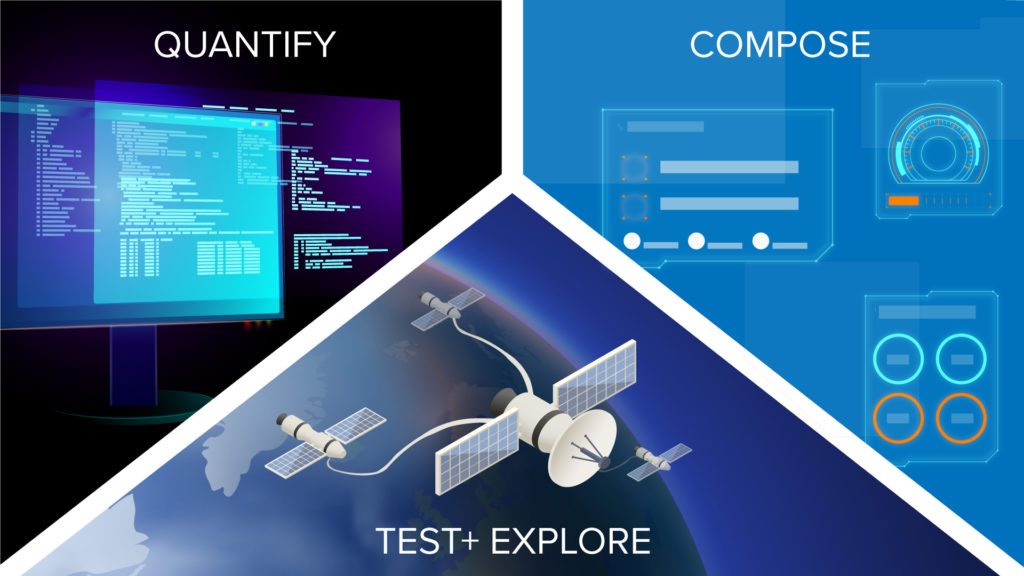
Charles River Analytics received more than $9M from the US Department of Defense to develop modeling tools for more fail-proof artificial intelligence (AI) systems. As AI systems are increasingly called into service, there’s a greater need for human-machine interfaces (HMI) that keep the operator in the loop. With these interfaces, if an AI model is […]
Centers for Disease Control and Prevention Awards Charles River Analytics Grant to Design a Tool for Fertility Clinics to Help Manage Pregnancy Outcomes

Charles River Analytics was awarded funding from the Centers for Disease Control (CDC) to develop a health management application that helps fertility clinics receive pregnancy outcome information from patients who have undergone assisted reproductive technology (ART) treatments. Clinics that provide ART treatments are federally mandated to report outcomes to the CDC to support ongoing research. […]
